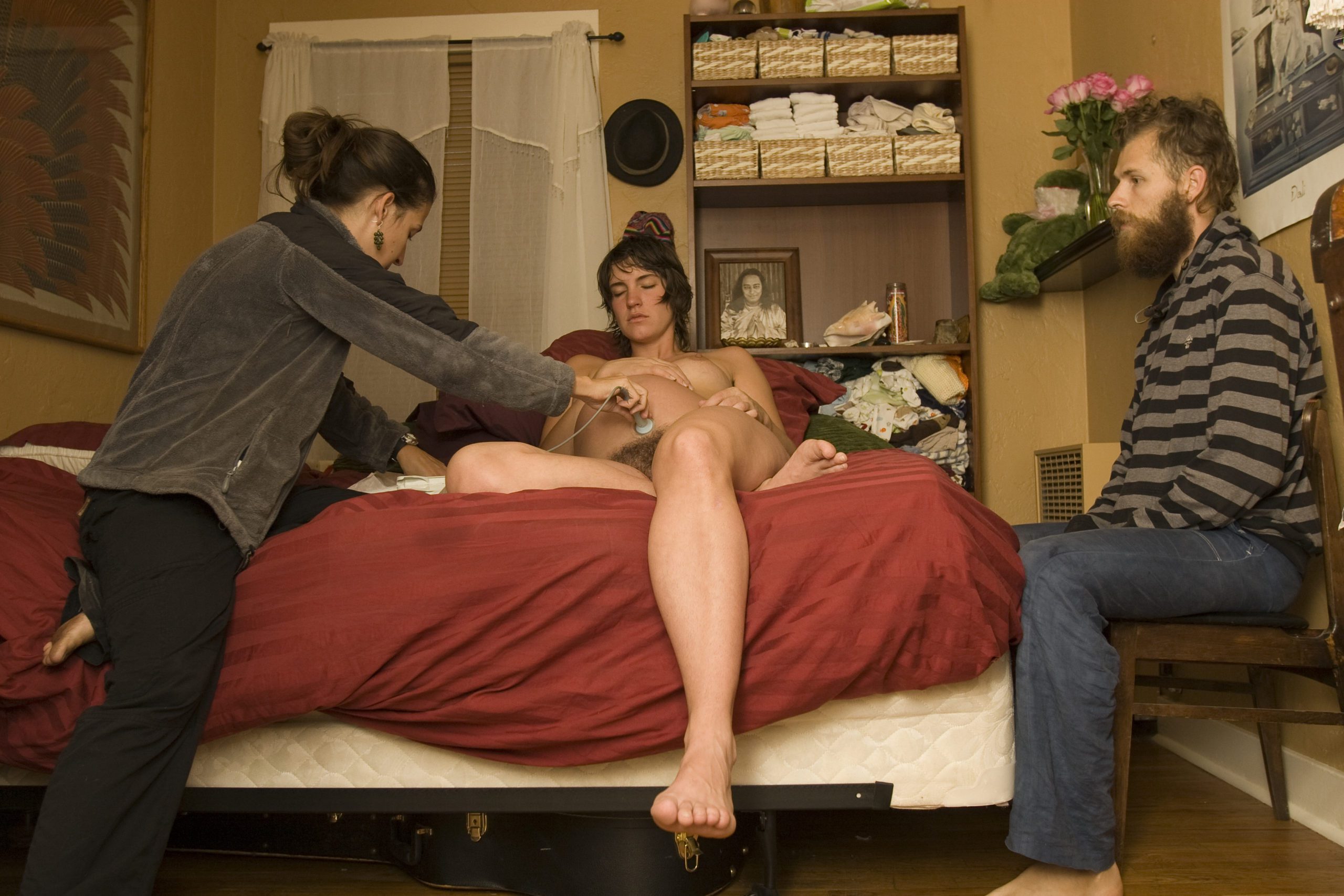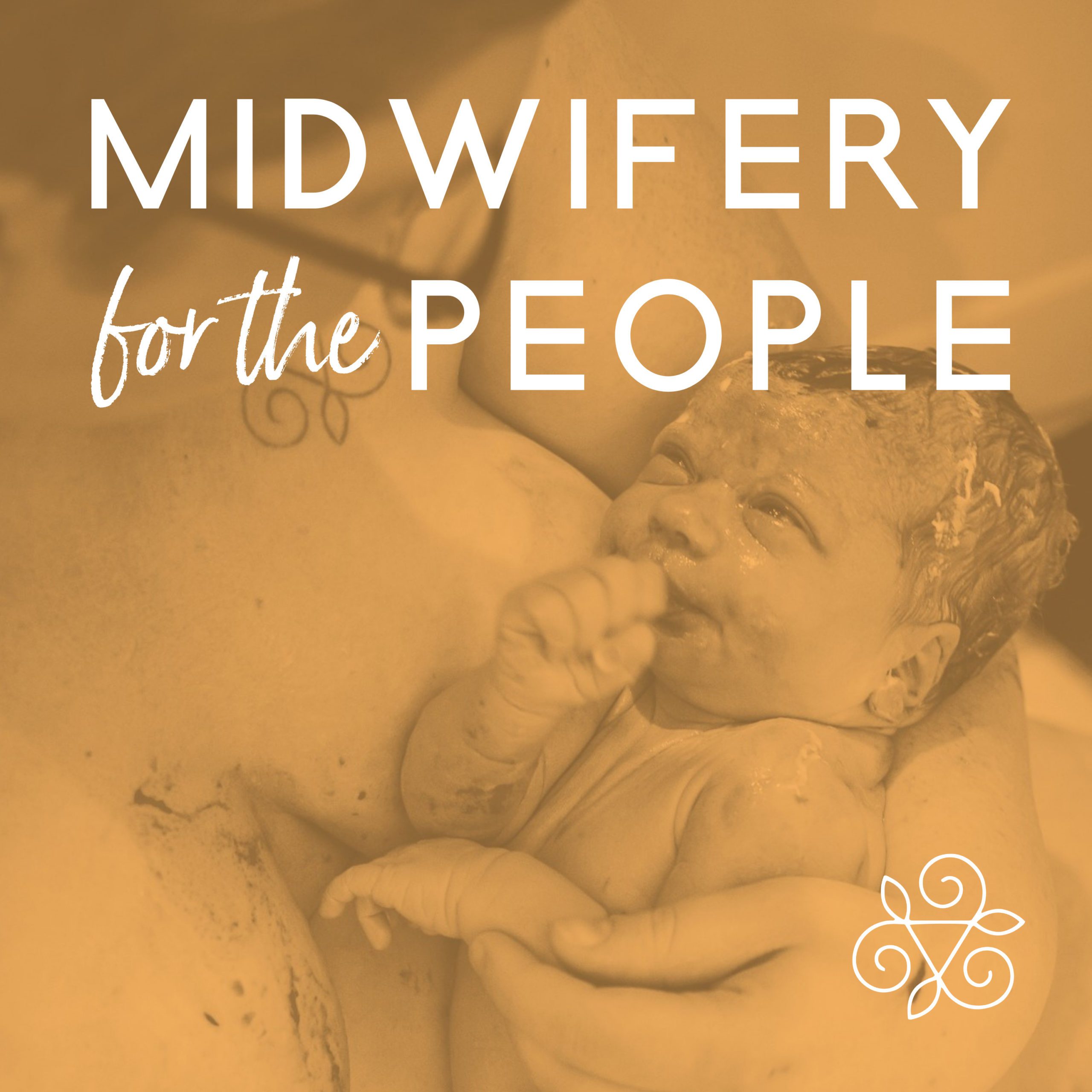
(A transcription of a Midwife Monday live talk; for future lives, go here)
And here’s the video if you’d rather watch it!
All right. You’ve got your tea, and I was going to talk a little bit about apprenticeships. Mostly because someone asked with some direct questions related. And I thought that would be a good topic. Apprenticeship is something we’ve talked a lot about already. We have lots of resources out there. But why not? This is a fresh take on this mysterious creature really called midwifery apprenticeship. So I’m not going to bore you with my own stories of apprenticeship. They’re mostly in our book, Indie Birth: A Story of Radical Birth Love if you haven’t read it. And the short version is I mainly apprenticed with two different midwives. And I went to births with a couple of other ones as well. So all said and done, four or so midwives that influenced me. But two were the ones who I spent the most amount of time with.
And they were very different. They were in different locations in this country. And they practiced pretty much like night and day. And it was the hardest five years. It was very difficult on me. And I think it is on most people which is definitely part of the topic of apprenticeship. It really takes dedication. It takes time especially if you’re doing it in this way so slowly. Five years is not a quick amount of time to be following some around and to be learning essentially this entire thing we call midwifery. It’s stressful. It’s stressful on a family. I was obviously having my own babies back then too. So I had babies two, three, and four while I was apprenticing. And by the time four was a couple months old, then I was done with the apprenticeship part. So I’ve been there. I’ve lived it. It’s hard. But it’s worth it.
And for many of you that are listening and know about how apprenticeship works and also how our school works, Indie Birth Midwifery School, we don’t include an apprenticeship. We provide the online learning, an optional in person, weekend, skills workshop. We can’t provide apprenticeships because they are so personal. And they are so individual. And it can be hard work for sure to find one much less complete one. First you have the finding, then you have the actual doing it and completing it. And yeah. It’s a huge topic. And there is so much in there to talk about.
However, the specific question that came my way was more about NOT doing an apprenticeship perhaps if it seems like there aren’t any opportunities. And that’s something we hear a lot too. There aren’t any midwives in my area, or there aren’t any that would take me on. Or in our case, all of the midwives are licensed, and they’re just really not that interested in taking on a student who doesn’t feel that way. So there are a lot of excuses. And some are valid. Some are very real reasons. And then I think there is also just the hesitation, frankly, to get involved in such a personal relationship. So ideally, I think, the relationship between a student and a mentor midwife is personal. And it’s close. And it’s intense. And if you’re going to births together and you’re in women’s lives together, I think that goes without saying. It’s not this strictly professional thing. You’re exchanging lots of memories together and forming bonds together. So it’s just not something to be taken lightly.
And as much as students sometimes feel like apprenticeship is something to just get done, just cross off the list, it’s also an opportunity for a very unique kind of learning and a very unique relationship. But it’s not something to be rushed. And it’s not something to be feared. However, it is understandable how it’s intimidating. And I think that’s part of the reason why many women don’t do it and maybe ultimately don’t do midwifery. It’s one of the more intimidating ways of learning, in a sense. And ultimately, I think the role of midwife can be intimidating to some people. So apprenticeships are so valuable. And I guess for people that are wondering, “Should I or shouldn’t I,” for me, it wasn’t a question. It really was not a question. When I was an apprentice, I was very, very grateful, honestly, even though I kind of stumbled upon my apprenticeship. And it wasn’t easy, as I said. But it was totally worth it.
And I can’t imagine not having really been gifted that amazing experience. I can’t imagine just having gone off on my own as a midwife at that point for a variety of reasons. (a) I didn’t have any experience really past my own births and maybe the handful of births I had seen. But that’s not enough, of course. And in this kind of work, it’s not like complications are coming up all the time. So it’s really a catch-22, in a way, because you think, “Well, why am I going to births if I want to learn how to manage things that might need to be handled but then I don’t really see these things?” Well, over time, you eventually do. So that’s my experience. You don’t think you can go to a handful of births and think, “Oh, I know all the things. Babies come out. There’s nothing to know. It’s no big deal.” And I’m not saying there are people out there that are necessarily acting that way. But the value of apprenticeship is maybe not understood.
So even if somehow you were really studied, you knew a whole lot and maybe had done several years of school and read all the books and had your own babies even, there’s still going to be so many elements and things that are outside of that experience that would make it very hard, I think, to be in the role of midwife without. And that’s the short version. So yes. I think apprenticeship is definitely necessary. Is it easy to find? No. Can it be intimidating and kind of to test our resilience and maybe all kinds of issues like if we think we’re worth it or our own values, our own structure? Yes. It will. And it probably will. It can, and it will. But that’s the nature of it. That’s the nature of it for sure. Certainly, there are other kinds of trainings out there. And I do think apprenticeship is valuable, and I want to talk about some of the reasons why in a minute. But there are certainly other ways to gain experience and training. Hands on training especially if you’re somebody that is concerned, rightfully so, that you might not have the skill set to handle anything that isn’t outside of absolutely normal—the baby falls out because no one really needs any skills for that other than knowing how to hold space and staying energetically clear and all of that good stuff. As far as hands on, you don’t need a whole lot when babies just come out. So it’s not for those situations.
But there’s also more to apprenticeship, of course, than just emergency support and care. But other kinds of training, yes. People go to birth centers. People go to high volume clinics. People travel. Travel to a midwife that maybe isn’t even that busy. I’ve had many people ask over the years if that was a possibility for them to come here. And sure. It’s not off the table because I want to train more midwives. And I think the more experience you can get attending births with other people is the best. I really don’t envy anyone that has ever felt like they needed to just go at this alone without an apprenticeship. And I have friends that have. So I don’t have judgment on that decision to just call yourself a midwife and go for it. But I definitely think there are things to consider. And especially if you’re younger in life and you have plenty of time ahead of you to consider those options, I think it’s silly not to. And, again, I just kind of don’t resonate because when I was a student, even having seen births, if my senior midwife—my mentor midwife—had kicked me out of the nest too early, so to speak, I would have been terrified. I knew I wasn’t ready to go to births alone.
So I guess people are just different. And I can respect that not everyone would feel that way, but I totally did. And I needed my full five years being in the nest before I was ready to do it on my own. So there are a couple of ways that apprenticeship is really awesome and unique versus other kinds of trainings.
One, for sure, is just learning to live the lifestyle of being on call. So if you’re not used to that, I don’t know how you would just dive into that and be fully responsible as a midwife when you’ve never had any practice. It’s an entire lifestyle to follow a midwife around which is what an apprenticeship is. And just have your life be in that ebb and flow that is birth. So you never know when the phone is going to ring really. And there are obvious boundaries that you have to put on your life travel wise and time wise and energy wise so that you can be available. So I’m not going to go on and on about that. Being on call is probably its own separate topic, but I think it’s a really valuable way that apprenticeship can teach us and let us know, if we’re ready (a), and (b) if we really want to do this thing ever on our own.
I’ve totally had students and know of many people—very smart, amazing women who thought they wanted to be midwives. And literally, they were on call for a week, and it didn’t work for them. It didn’t work for them. And it doesn’t work for everybody. It’s a very unique way of living. And I think some people have to grow into it even. Like they have to get used to it. I remember the very first time I was ever on call as a student. And my phone didn’t ring. Now how embarrassing and horrifying is that. I don’t remember why. It was a long time ago. Whoops. I don’t know if I didn’t have the ringer on, whatever. But I wasn’t prepared. I wasn’t living that lifestyle yet. So it was highly embarrassing. And luckily, my midwife mentor didn’t judge me or embarrass me. And I went on to learn how to be on call. So that is a very valuable skill. And I would really hate to see people not learn that or learn that when they’re really under full responsibility. I mean certainly as a student it allows you grace.
Point number 2: an apprenticeship is so valuable because you’re not the one responsible. Of course, the women are responsible, right? For their experience. But we, as midwives, we’re responsible in the role that we have taken on, and we’re responsible to the woman, et cetera. So why would you want to rush that is my question?Some women, who think they want to be midwives, get in the role of apprentice or student, and they never leave. And that’s great. They become the world’s best assistants, and, god, there’s nothing like a good assistant. So some people were meant to do this thing, and some people were meant to do this thing. And being in that student role is—I think it goes without saying, right? So much less pressure. I won’t lie. I think back on my student days, and I think, “Man, that was nice.” It’s like being a kid at home. It’s like being a teenager. You get to take advantage of the things that are there like food. But you don’t have to pay the bills. That’s an apprenticeship in a nut shell, and I think that’s a really awesome place to be because it allows you the opportunity to really soak in the experience without needing to act, without needing to make a choice, without really having it be anything about you. You’re just there helping, observing, witnessing, and you get witness to so many things that are a true honor and that teach so much.
Take an advantage of the apprentice life! Live up your apprentice life. I know it’s hard. I know it’s a struggle in so many ways. Financially, definitely, that’s one. But enjoy being in that place where you can just afford to help as you can and not have to sort of look at all the moving parts. And so that’s another point. I think if you’re a student midwife or maybe you have some birth experience, and you’re one of these people that’s like, “Maybe I should just go out on my own. I can’t find anyone. Maybe I don’t need an apprenticeship.” I want to ask you this: how do you know what you don’t know?
I think there’s always that question because there’s always things we don’t know. But after 15 years of doing this, I can tell you that I was not aware of all the moving parts even when I first started on my own as a midwife. I was not aware of all of the pieces of the puzzle, and I might still not be aware truly of all them. But if you don’t have the experience of watching and learning then you have even less of an idea of all the pieces. And, again, that’s not to say it isn’t the right choice for some people. There will be women out there, maybe, who maybe don’t care. They’re like, “I want you at my birth. I know you’re not a midwife. I know you didn’t do an apprenticeship. Blah, blah, blah. But you’re the one. I want you to sit there.” That happens.
But if you’re going to put yourself out there as a midwife without an apprenticeship, I just don’t know how you could know all the pieces. There is just so many. Take advantage of it as a student. And the beauty of being a student too, obviously, is that you get to learn and, hopefully, from different people. And you get to take what you want and leave what you don’t want. And that is how you create your own vision, your own internal identification with this role of midwife. This isn’t a role that someone else throws on you, right? With a piece of paper. I mean it happens. That’s how a lot of people think you become a midwife. But truly, the internal journey, I think, is the most important. So that’s where I really can’t give the ultimate answer for everyone. We’re all different, and we should all follow our internal truths and compass. But for many women, it’s going to be a title that they essentially give themselves when they feel like they have gathered what is needed for them.
Again, I’m not sure how you gather the parts if you don’t have the privilege and advantage of seeing someone do the work. How do you know? Because as many of you know, midwifery, as we are talking about it is, is not just the clinic version. We’re not talking about check them in, take the blood pressure, listen to the baby’s heart beat, weigh them on a scale, check them out. That’s not true midwifery. So I think if you don’t have a model for that then yeah. You’re on your own, and that might turn out great. And it might not turn out great. And you might quit because—yeah. It’s just not very fulfilling, or who knows what? You get in over your head. There’s a million possibilities. So those are some of the reasons that I really would encourage everyone to find an apprenticeship.
And, again, it may not be the absolute perfect thing. You might have to try again. You might do a couple years here with this person, or then you might go six months here and do this with that person. Great. Keep what you want. Don’t keep what doesn’t work for you. And keep refining and thinking through and processing your own vision of what you will embody as a midwife because that is yours to do on your own. And you will do that, apprenticeship or not. But I do think apprenticeship is so invaluable. And it’s sort of this more ancient way of passing down knowledge. And there definitely are potentially some hiccups and ways that can go wrong as well. But ultimately, I think it’s great.
The last reason I wanted to mention is also maybe obvious. But if you have the privilege being in an apprenticeship—and I do think it’s a privilege just as I think having a really awesome student is a privilege. I get that privilege. It’s a privilege. It should feel like a privilege on both sides ideally. And one of the other privileges is just getting to see the relationships with other women and families and be a part of that. So even if you’re not responsible, I’ve always worked with people that welcomed students in when I, myself, was a student and now with the students that I have. I’ve rarely had clients that weren’t into it. They invite these women in. You get to know about them. You get to know more than you ever thought you could know about someone. You get to be in their home with their family. And that’s all just so special. And not only is it special, but, again, it teaches so much. So this version of midwifery is not the quick clinic version. It’s the continuity of care version. And I think there is only one way you learn that, and that’s by living it and doing it. It’s just not something that you get quickly. We live in a culture where everything is done quickly, but this is not one of them.
So in answer to the question, that’s the long answer. I think take a breath. Trust that the right opportunities will show up. And just keep working at it and embodying where you are right now in a way that feels really good to you and not getting ahead of yourself. There is no rush. I know we all want to do this work. And we want to do it when we want to do it. But the universe knows the timing. And the universe knows what we need and who we need to be with and who we don’t need to be with. That’s a side lesson I feel like that’s come up for me this week again. And it’s not a new lesson. But just remember there is magic in timing. There is magic in timing. And there is magic in being where you should be, which, of course, is where you are, right? There’s also magic in being—in not being somewhere. So that kind of speaks more to working with people, I think, as well as apprenticeship. Being attentive to the energies that you feel in certain situations and with people can help direct you. And so you don’t feel like you missed anything. You don’t feel like you missed that opportunity or that apprenticeship or that client because that was never where you were supposed to be in the first place.
This might definitely be a change of perspective. And I think we’re dealing with the feminine essence essentially so much of the time in this work—makes sense. So as opposed to a more masculine presence, which knows there’s a timeline. And there is a direction. And that’s another thing that’s come up for me. And these cards are very magical, and that was one of the cards. Was direction. And the message, as I took it, is that sometimes there is no point A to point whatever—Z. It’s really a meandering. And so trusting the path and learning what you need to learn and trusting that when you’re ready to be in the role of midwife you will be that. And you will feel that. And your community will think you’re that.
To learn more about midwifery and apprenticeship, check out our Intro to Autonomous Midwifery course!





+ show Comments
- Hide Comments
add a comment